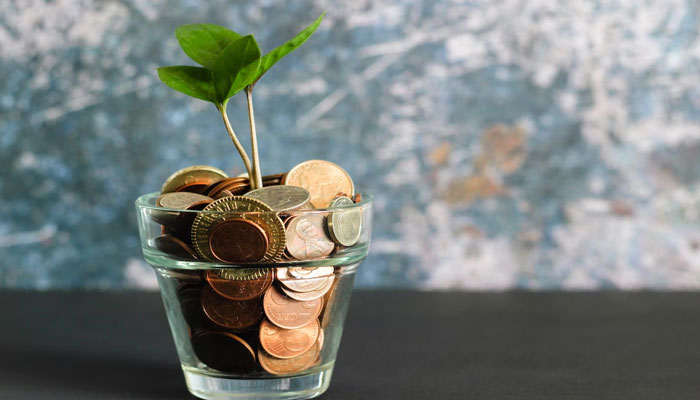[Analysis] Interest-free banking: Populism over policymaking
Pakistan's total debt at the moment stands at Rs50 trillion, of which roughly Rs33 trillion is domestic debt denominated in Pak rupees, while the remainder is denominated in foreign currencies
KARACHI: Pakistan is no stranger to debt. Its total debt at the moment stands at Rs50 trillion, of which roughly Rs33 trillion is domestic debt denominated in Pak rupees, while the remainder is denominated in foreign currencies. The government continues to run recurring deficits, and rarely has there been a year in the last three decades that we had a surplus. In effect, our expenditures remain consistently greater than our revenues.
So how do we fund our deficits? We fund them by borrowing from the market, and by paying an interest rate. The people of Pakistan are essentially depositors in banks. These banks then use those deposits to lend either to the private sector or the public sector. During the last decade, the share of the sovereign and public sector has significantly increased, as they now make up more than 70 per cent of the total assets of the banking system. The sovereign has essentially crowded out the private sector by following a strategy of running perpetual deficits.
If hypothetically, and magically, we do move towards an interest-free economy, how exactly will the sovereign fund its operations? One is hard-pressed to find anyone who would be willing to lend capital to the sovereign to run its affairs at zero interest rate, or for free. It’s a nice thing to have, but not something that one can have. Developed economies flirted with zero interest rate, and even negative interest rates during the last decade, but that eventually led to massive monetary expansion, which led to significant uptick in inflation across the board.
As long as we keep borrowing to run our affairs, moving towards an interest-free economy will remain a pipe dream. There is however a possibility that there will be an eventual conversion of all commercial banks in the country into Islamic banks. We may see a roadmap, and even some progress. We may even start calling interest rates profit rates, and pretend it’s all kosher. However, there remains a significant shortage of assets that can be deemed Shariah-compliant, that the banks can then redeploy their capital towards.
As the sovereign makes up almost 70 per cent of all banking assets, it is not possible to convert all these assets into Shariah-compliant assets. A pre-existing condition of a Shariah-compliant asset is that it needs to be backed by some physical and tangible asset. However, most securities that are issued by the sovereign to raise debt have no physical asset underlying that instrument, other than the promise of the sovereign that it is going to pay back whatever it has borrowed.
A transition towards an interest-free economy isn’t really happening, especially not under the current macroeconomic circumstances. The conversations about transition are more of a populist play, or to assuage certain sections of society. We may see some change in nomenclature, wherein how we refer to banking transactions, and spin a more Shariah-compliant version of the same. However, if purely economic fundamentals are considered, it may not be possible.
Nevertheless, if we undergo massive structural reforms, that results in substantial flow of funds into the banking system, and the demand for funds is eliminated from the sovereign as it starts posting surpluses, we may see the market price of funds, or the interest come down close to zero.
Considering how our economy has been managed in the last seven decades, and how there is more focus on populist slogans than actual economic policymaking, there is little-to-no chance of actual structural reforms happening any time soon.
-
 King Charles Speaks Out Over Andrew's Scandal: 'Stand Ready To Help Police'
King Charles Speaks Out Over Andrew's Scandal: 'Stand Ready To Help Police' -
 Dax Shepard Recalls Horrifying Accident That Almost Killed Him
Dax Shepard Recalls Horrifying Accident That Almost Killed Him -
 Logan Paul's Bodyguard Hits Fan On Super Bowl Day
Logan Paul's Bodyguard Hits Fan On Super Bowl Day -
 Epstein Files: Anne Hathaway Mentioned As Highly Desired Guest For Bill Gates?
Epstein Files: Anne Hathaway Mentioned As Highly Desired Guest For Bill Gates? -
 Prince Harry Under A Lot Of Stress As Meghan Markle Makes Bizarre Demands
Prince Harry Under A Lot Of Stress As Meghan Markle Makes Bizarre Demands -
 Princess Beatrice, Eugenie's Subtle Break From Disgraced Parents Exposed
Princess Beatrice, Eugenie's Subtle Break From Disgraced Parents Exposed -
 Baby Left In Running Bathtub Dies After Father ‘forgets’ Him
Baby Left In Running Bathtub Dies After Father ‘forgets’ Him -
 King Charles Takes A Major Step To Keep Horrified Prince William Out Of The Loop On Andrew: Insider
King Charles Takes A Major Step To Keep Horrified Prince William Out Of The Loop On Andrew: Insider -
 Taylor Swift Set To Make Biggest Cut From Her Wedding Guest: Blake Lively Or Ryan Reynolds
Taylor Swift Set To Make Biggest Cut From Her Wedding Guest: Blake Lively Or Ryan Reynolds -
 Prince William Meets Saudi Crown Prince Mohammed Bin Salman
Prince William Meets Saudi Crown Prince Mohammed Bin Salman -
 Brooklyn Beckham Brutally Cuts Off Inner Circle Amid Feud With David, Victoria
Brooklyn Beckham Brutally Cuts Off Inner Circle Amid Feud With David, Victoria -
 Kaley Cuoco Reveals Why Fiance Tom Pelphrey Sleeps In Seperate Room
Kaley Cuoco Reveals Why Fiance Tom Pelphrey Sleeps In Seperate Room -
 Ghislaine Maxwell Will Not Answer Congress Questions On Epstein
Ghislaine Maxwell Will Not Answer Congress Questions On Epstein -
 Kensington Palace Announces Prince William's Arrival In Saudi Arabia
Kensington Palace Announces Prince William's Arrival In Saudi Arabia -
 ‘Andrew Crisis Follows King Charles Everywhere Now’
‘Andrew Crisis Follows King Charles Everywhere Now’ -
 Jennifer Aniston Already Decided Her Wedding Dress?
Jennifer Aniston Already Decided Her Wedding Dress?




